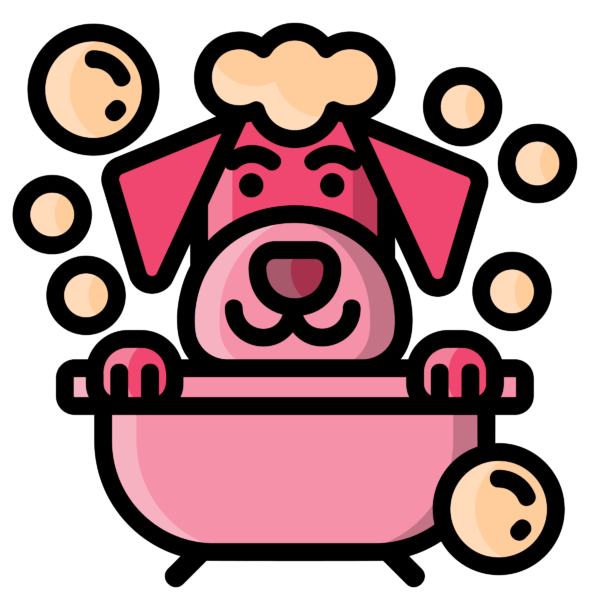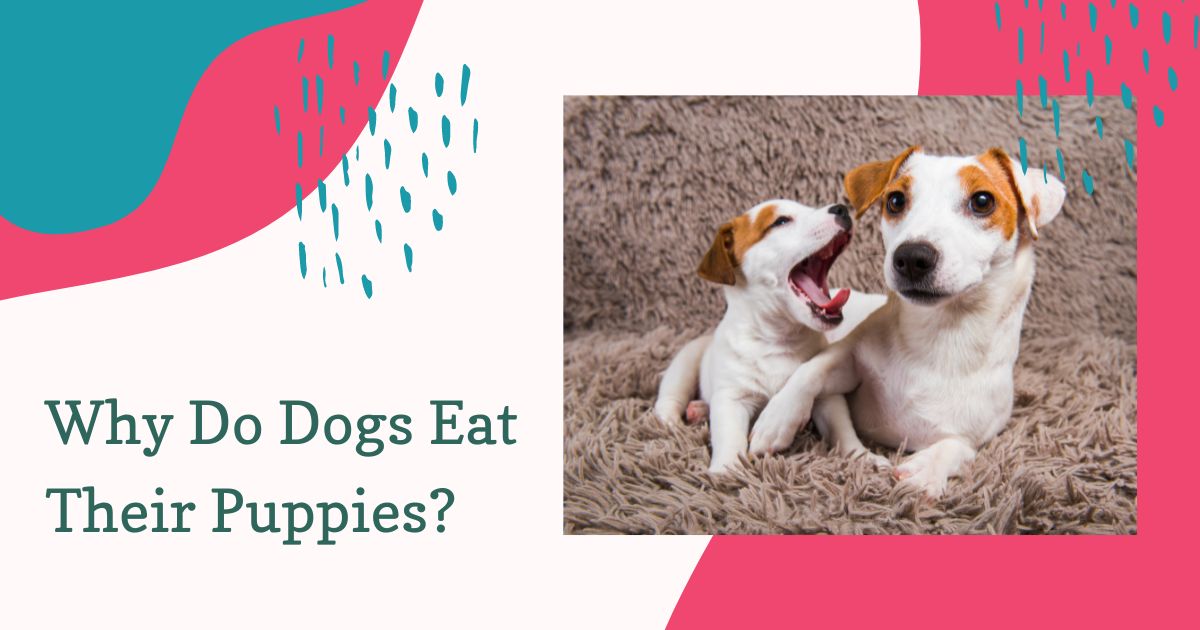Do Dogs Eat Their Babies?
You may be asking, “Why do dogs eat their puppies?” It’s rare, but dogs do occasionally eat their babies. Canines are not the only ones who eat their young ones. Other mammals, such as bears, hedgehogs, rats, primates, insects, birds, and reptiles, occasionally eat their young ones.
If a mother dog eats its puppies, there is usually a cause behind it. This article highlights the reasons why.
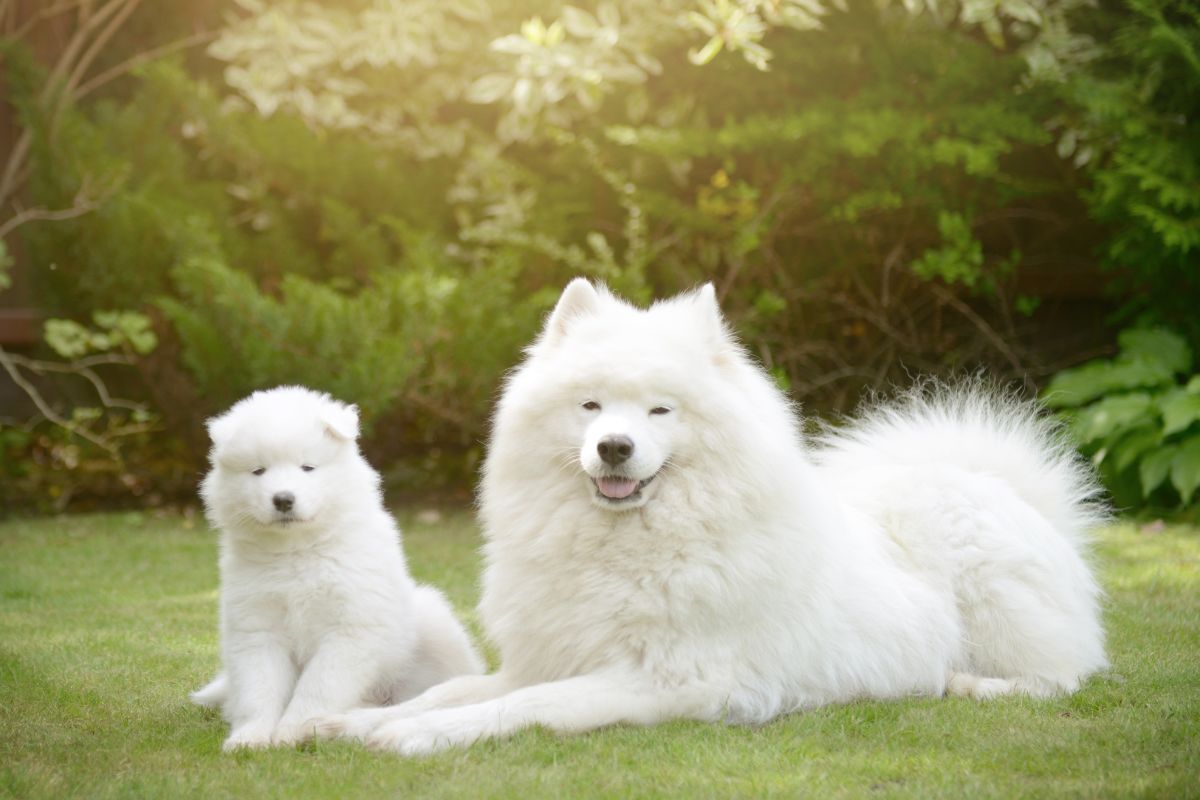
Why Do Dogs Eat Their Puppies?
Instinct is primarily what drives a dog to eat its offspring, but there are other reasons. Some may accidentally eat their offspring, others may eat stillborn puppies, and others may be reacting to stress or a medical condition. Here are five explanations for the question, “Why do dogs eat their young ones?”
- The Puppy is Sick
There are numerous causes of neonatal puppy illness and death. As a result of respiratory infections, cardiac conditions, or improper nutrition in the womb, a puppy may be born ill. A mother dog can quickly detect a sick puppy. When that time comes, it must determine if it is worthwhile to expend energy and milk on a pup that may not survive.
Frequently, the mother will consider eating her puppy rather than waste valuable nutrients and energy on it. A sick puppy threatens the rest of the offspring since infections and diseases can rapidly increase and kill every puppy. Instead of allowing this to occur, a mother dog will eliminate the danger to protect the remainder of the litter.
- It Made a Mistake
A mother dog may kill its puppies by accident, mainly if it is its first litter. When the mother removes the birthing sac and cuts the umbilical cord, it risks injuring or even killing the newborn puppy. Once an infant dies, its mother may decide to eat it.
This will help it recover the vital nutrients and vitality it lost during birth, and the remaining puppies will receive these nutrients through the mother’s milk.
Generally, it is best not to intervene while your dog is giving birth. Its instinct will direct its actions. However, if you observe that it is struggling and may harm a puppy, it is acceptable to assist it.
- It Doesn’t Recognize the Puppy
In extremely uncommon instances, a mother dog may not recognize its offspring as its own. It is more likely to occur if the canines were born via C-section. Vaginal birth provides hormones to the puppies that help identify them as belonging to their mother.
Usually, if a dog does not recognize the offspring immediately, it will do so with time. As its maternal instinct may emerge in a few days, preventing it from killing or consuming the puppies is crucial. Try hand-feeding the puppies and gradually reintroducing them to the mother.
- It is Suffering from Mastitis
Mastitis is an uncommon canine condition affecting nursing mother dogs. The condition can be fatal for puppies. Mastitis is a breast tissue infection that causes inflammation and sensitivity of the nipples. The extreme sensitivity of a dog’s teats can make nursing extremely problematic.
Young puppies are unaware that their mother is experiencing excruciating agony. They know exactly where the milk is. As the puppies endeavor to eat, the mother may lash out, injuring or even killing them. It could also abandon or evict them from the den. Abandonment can be equally frustrating to the puppies.
You should take your dog to the veterinarian immediately if you observe that it cannot nurse its puppies, appears distressed, or is aggressive. Your veterinarian can treat mastitis and make your dog much more comfortable. Read our article and find out The Best Dog Food for a German Shepherd Puppy.
- It is Experiencing Stress
After a mother dog endures the ordeal of giving birth, it is likely exhausted, hungry, terrified, and must cope with a litter of crying puppies. The stress of this situation could provoke it to act out violently. If it unintentionally injures or kills a puppy in this situation, its predatory instinct may cause it to eat the puppy. To reduce your dog’s anxiety:
- Provide it with abundant, readily accessible food and water.
- Do not disturb it excessively or attempt to interfere with the puppies unless it requires assistance.
- Remove the male dog if it is still present; a mother dog can become anxious if a male dog is nearby.
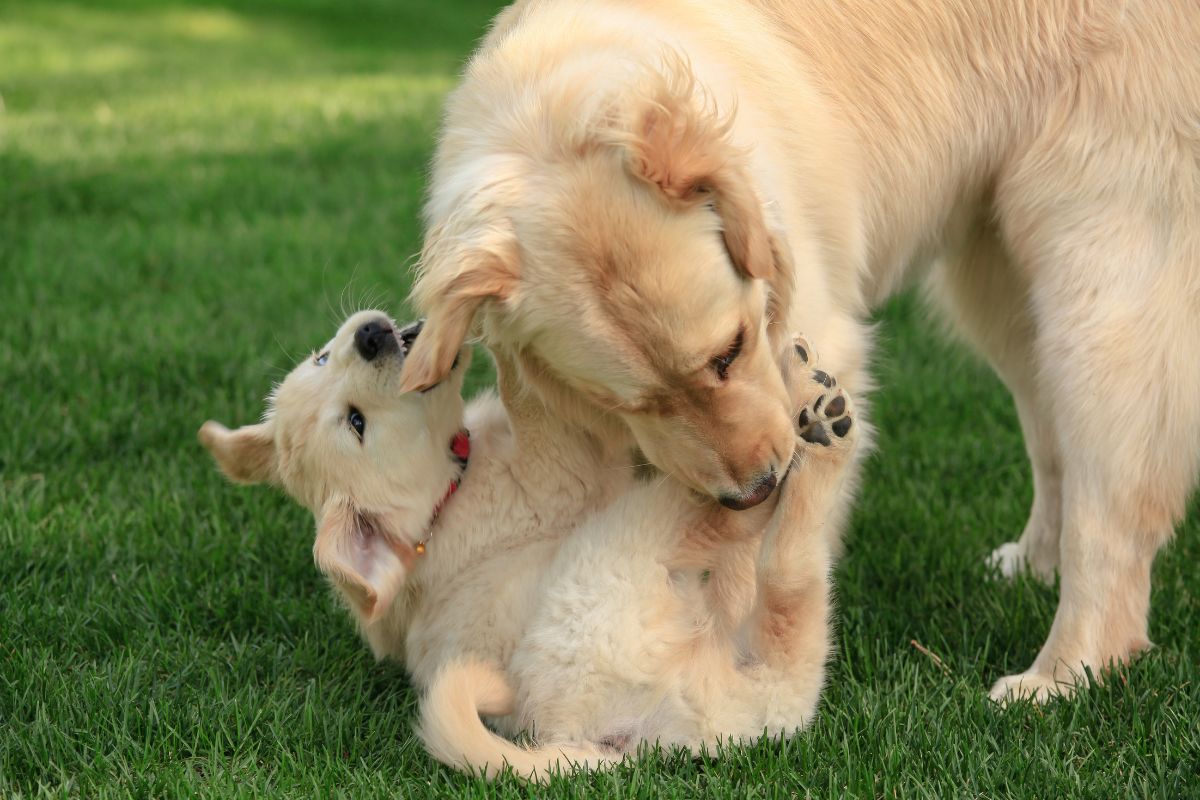
How Do I Stop My Dog From Eating Her Puppies?
There are several things you can do to keep the mother dog from eating the puppies:
- Establish its nursing location in a quiet room where no children or visitors (including dogs or other pets) will bother it.
- Eating of puppies by mother dogs is common in cases of malnutrition. If you only feed your dog dry food, add scrambled eggs, cottage cheese, or something it can chew on, such as chicken feet.
- Take your dog to your local veterinarian for a checkup. It may have a medical condition that’s resulting in this behavior.
Are Dogs Cannibals?
No, the claim that dogs are cannibals is false. Although dogs scavenge and eat the remains of other creatures, they do not usually consume the meat or organs of other canines or their species.
This is because spontaneous cases of cannibalism in dogs typically involve an animal with an abnormal mental state (due to cruelty or neglect), starvation, and, most commonly, instances of mother dogs eating their young for various reasons.
Is it Normal for a Mom Dog to Eat Puppy Poop?
Often, the mother dog eats its puppies’ feces to keep their “den” clean. Additionally, it does this to protect infants from predators who are attracted to the feces’ odor. Because infants are naive, they imitate their mother’s behavior. Puppies who eat feces are merely imitating their mothers!
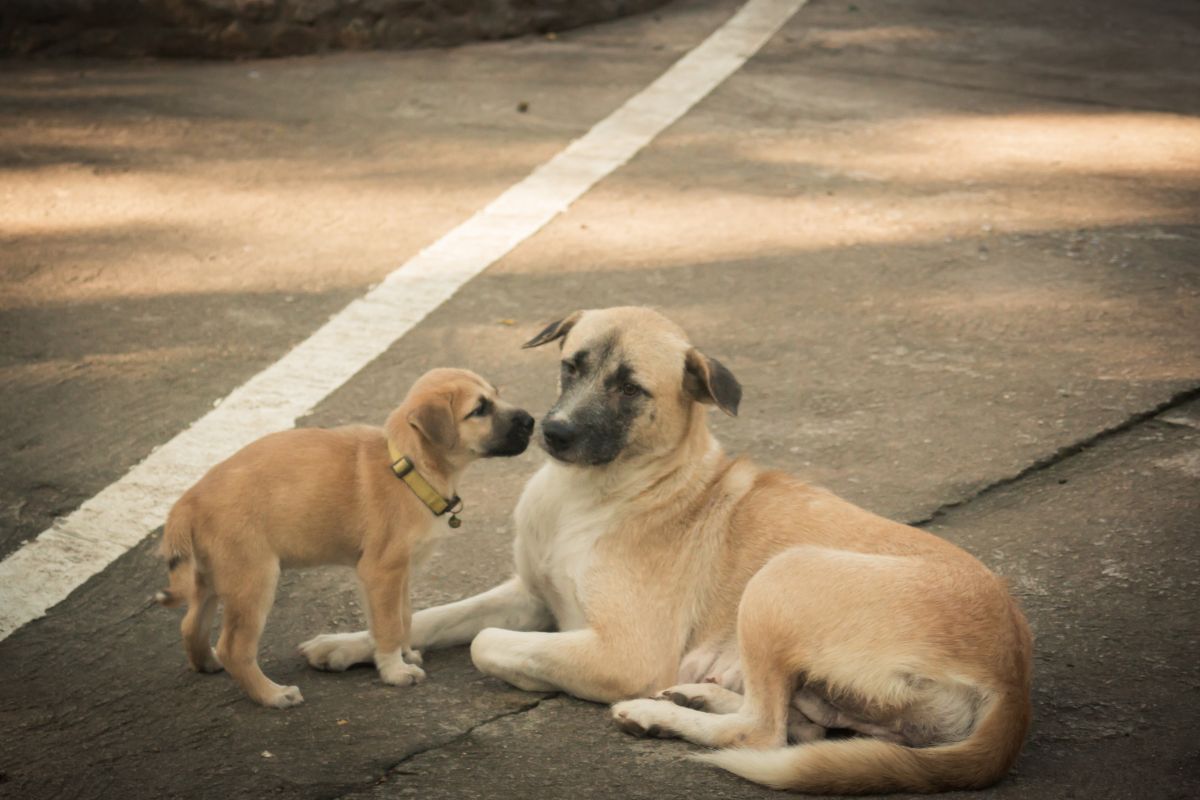
Final Recommendations
Many dog owners find it odd that, in some instances, mother dogs eat their offspring. However, as unsettling and devastating as this behavior may appear, there may be valid reasons for it. Understanding this behavior necessitates a deeper understanding of how mother dogs care for their puppies and the repercussions of dealing with puppies with meager survival rates.
